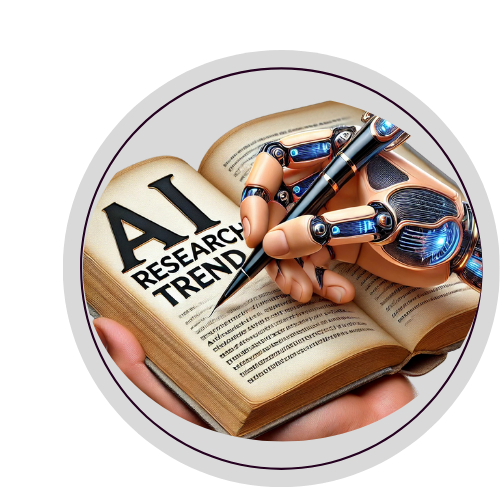Unlocking emotional intelligence can change your life in big ways. Imagine knowing how to read others’ feelings and control your own. This skill is key for success in interviews and in relationships.
We’ll explore the 4 main parts of emotional intelligence. Learning these will help you grow personally and professionally. You’ll get tips from experts like Salovey and Mayer, and Daniel Goleman. This guide will help you boost your emotional smarts.
Table of Contents
Understanding Emotional Intelligence
Emotional intelligence lets us know and handle our feelings and those of others. It helps us deal with social situations, make smart choices, and build strong relationships. Knowing about emotional intelligence can change our lives for the better, both personally and at work.
What is Emotional Intelligence?
Emotional intelligence has five main parts: self-awareness, self-regulation, motivation, empathy, and social skills. Self-awareness means knowing our feelings and how they affect us. Self-regulation is about controlling our emotions well.
Motivation pushes us to reach our goals. Empathy lets us understand others’ feelings. Social skills help us talk well and solve problems.
The History and Evolution of Emotional Intelligence
Peter Salovey and John Mayer first talked about emotional intelligence in 1990. They said it’s about using emotional information. Then, Daniel Goleman made it famous with his book, “Emotional Intelligence,” in 1995.
Goleman showed how important emotional intelligence is for success. Since then, studies have kept proving its value in work and leadership.
Why Emotional Intelligence Matters
Emotional intelligence is very important. It affects our personal and work lives. People with high emotional intelligence handle stress better, talk well, and solve problems.
This skill makes our personal lives richer and our work environment better.
The Impact of Emotional Intelligence on Personal and Professional Success
Knowing about emotional intelligence can really help us succeed. Studies show that emotionally smart people do well in leadership, work together better, and make good teams.
By improving these skills, we can make our work place better, leading to more happiness and success at work. Emotional intelligence also helps us in our personal lives, making our relationships stronger and our happiness greater.
| Components of Emotional Intelligence | Descriptions |
|---|---|
| Self-Awareness | Recognizing and understanding one’s own emotions |
| Self-Regulation | Managing emotions constructively |
| Motivation | Driving towards personal and professional goals |
| Empathy | Understanding the feelings of others |
| Social Skills | Effective communication and conflict resolution |
Self-Awareness and Emotional Intelligence
Understanding the link between self-awareness and emotional intelligence is key. It helps improve both personal and work relationships. Starting with self-awareness is the first step to better emotional intelligence.
The Role of Self-Awareness in Emotional Intelligence
Self-awareness is vital for emotional intelligence. It helps us understand our own feelings. Daniel Goleman, a top expert, says more self-awareness lets us spot emotional triggers and control our reactions better. Knowing our emotions helps us make choices that lead to good outcomes.
Techniques to Increase Self-Awareness
There are many ways to boost self-awareness. Reflective journaling, asking for feedback, and meditation are good methods. These practices not only increase awareness but also improve emotional intelligence. They help us understand our feelings and how we react.
Recognizing Emotional Triggers
Finding and understanding emotional triggers is crucial. It helps manage emotions and grow self-awareness. Studies show that knowing these triggers can stop unwanted reactions and help us control our emotions better. Mindfulness and cognitive behavioral strategies can help find these triggers.
Strategies for Self-Improvement Through Emotional Awareness
After finding emotional triggers, we need strategies to control our emotions. Deep breathing, positive affirmations, and emotional regulation practices are helpful. Life coaches say regular use of these techniques can greatly improve self-awareness and emotional intelligence.
Self-Regulation Techniques for Emotional Intelligence
Learning to manage emotions well is key to emotional intelligence. It’s about finding ways to handle feelings and react calmly in different situations. This skill helps people deal with life’s ups and downs better, making relationships and work life better.
Using strategies for emotional control every day is a good start. Cognitive-behavioral therapy (CBT) is a proven method for managing emotions. Techniques like deep breathing, mindfulness, and changing negative thoughts can help control emotions.
It’s also important to control impulses and think before acting. Knowing why you feel a certain way helps manage emotions better. For example, when stressed at work, take a breath and think before reacting. This improves work relationships and creates a better work environment.
Studies show that using emotional regulation techniques well can lead to success in leadership. Leaders who stay calm and show emotional strength inspire their teams. Using emotional control strategies daily, like setting boundaries and balancing work and life, helps create a supportive work environment.
There are also training programs for emotional intelligence. These programs teach skills like setting goals, reflecting on yourself, and learning continuously. By joining these programs, people can improve their emotional management, leading to personal and professional growth.
Developing Empathy Skills
Empathy is key to emotional intelligence, helping us connect with others. It makes our personal and work relationships better. By being empathetic, we build stronger social bonds and achieve more at work.
Importance of Empathy in Emotional Intelligence
The importance of empathy in emotional intelligence is huge. It lets us feel and respond to others’ feelings, making our relationships deeper. Empathy is a bridge that connects us, boosting our emotional smarts in all areas of life.
Building Empathy in Personal Relationships
To build empathy in personal ties, listen well, care genuinely, and talk openly. When we work on developing empathy skills, we get closer to our loved ones. Simple acts like validating feelings, asking deep questions, and offering support can really help.
Cultivating Empathy in Professional Environments
In work, empathy is crucial for teamwork and leadership. It makes teams work better and employees happier and more productive. Leaders who focus on empathy understand their teams better, solve problems, and motivate everyone towards goals.

Using Empathy to Enhance Social Awareness
Empathy boosts our social awareness, helping us get along in social settings. By feeling and understanding others’ emotions, we act in ways that fit social norms. Empathy makes us more aware of the feelings around us, leading to better social interactions.
Emotional Intelligence in Relationships
Emotional intelligence is key to healthy and fulfilling relationships. It helps us understand and manage our emotions and those of others. This way, we build strong skills for connecting with people.
It’s about knowing and valuing the feelings of others. This skill lets us meet the emotional needs of our loved ones and colleagues. It makes our bonds stronger and our connections more meaningful.
Studies and experts agree that emotional intelligence helps us deal with social challenges. By improving these skills, we can better solve conflicts, communicate, and support each other.
Emotional intelligence brings big benefits in both personal and work life. It builds empathy and helps us understand others better. This leads to trust and teamwork. Learning these skills can make our relationships richer and more rewarding.
“Emotional intelligence is key to both personal and professional success. It’s essential in nurturing relationships that can thrive amidst challenges and change.” – Daniel Goleman
Practicing emotional intelligence helps us build stronger, more lasting connections. By focusing on understanding others and improving our relationship skills, we create healthier, more vibrant relationships in every part of our lives.
Benefits of Emotional Intelligence in the Workplace
Emotional intelligence in work settings is gaining more attention for its many benefits. When employees and leaders have high emotional intelligence, it improves many workplace areas. This includes better stress management, teamwork, and leadership.
Emotional intelligence is key for better teamwork. When emotional intelligence is valued, communication gets easier. Team members can understand and manage their feelings better. This leads to stronger teamwork and a more pleasant work environment.
Also, emotional intelligence helps in solving conflicts. People with high emotional intelligence can empathize and find solutions. This makes resolving issues easier.
The benefits of emotional intelligence in business also apply to leadership. Leaders with high emotional intelligence inspire and motivate their teams. They listen better, are more empathetic, and foster creativity and productivity. They also manage stress well, recognizing and solving problems.
Companies that focus on emotional intelligence have an edge. Their employees are happier and more engaged, leading to less turnover. This focus also builds a culture of respect and continuous improvement. It makes the workplace more appealing to talented people.
| Benefit | Impact |
|---|---|
| Leadership | Increased motivation and productivity |
| Teamwork | Enhanced collaboration and reduced conflicts |
| Conflict Resolution | Empathy-driven, constructive solutions |
| Managing Stress | Effective recognition and alleviation of stressors |
| Job Satisfaction | Higher engagement and reduced turnover rates |
Understanding the benefits of emotional intelligence in business is crucial. Companies must invest in emotional intelligence training. This approach improves teamwork, stress management, and prepares a workforce for future challenges.
Managing Emotions Effectively
Emotional intelligence is key in our daily lives, especially in managing emotions. By using emotional regulation techniques, we can handle stress better and change negative emotional patterns.
Emotional Regulation Techniques
Emotional regulation techniques help keep our emotions stable. These strategies, suggested by psychologists and mental health experts, help us react well to emotional triggers.
- Deep Breathing: Controlled breathing helps manage quick emotional responses.
- Mindfulness: Being present in the moment reduces anxiety.
- Positive Visualization: Imagining positive outcomes fights off negative thoughts.
Managing Stress with Emotional Intelligence
Handling anxiety with emotional intelligence means knowing stressors and using the right techniques. This builds resilience and improves mental health.
- Identify Stressors: Know the causes of stress to tackle them well.
- Develop Coping Mechanisms: Use activities like exercise, hobbies, and socializing.
- Seek Support: Reach out to friends, family, or experts when needed.
Identifying and Altering Negative Emotional Patterns
Negative emotional patterns harm our mental health. By managing emotions well, we can spot these patterns and change them.
| Negative Pattern | Alteration Technique |
|---|---|
| Catastrophizing | Practice rational thinking and fact-check fears. |
| Overgeneralization | Focus on individual instances rather than forming broad negative views. |
| Black-and-White Thinking | Embrace the complexity and nuances of situations. |
Using Emotions in Decision-Making
Understanding how emotions play a role in making decisions is key for personal and professional growth. By using emotions wisely, we can improve our decision-making skills. Emotional intelligence and rational thinking work together to help us make better choices.

Emotional intelligence helps us recognize and manage our feelings and those of others. This skill is vital for making informed decisions. It allows us to see the full picture of what might happen and how it might affect us.
Using emotions in decision-making can improve many areas of life. At work, it helps with teamwork and solving conflicts. In personal relationships, it strengthens bonds and understanding. By balancing emotions and logic, we can handle complex situations better.
Here’s a look at how emotional intelligence affects decision-making:
| Approach | Benefits | Challenges |
|---|---|---|
| Emotion-Driven |
|
|
| Rational-Driven |
|
|
| Emotionally Intelligent |
|
|
When we combine emotional intelligence with rational thinking, we make better decisions. This balance lets us think about both the logical and emotional sides of a choice. It helps us navigate life’s challenges with confidence and assurance.
Emotional Intelligence for Communication
Mastering emotional intelligence is key for better communication. We’ll look at how it boosts your skills, from reading non-verbal cues to the value of active listening.
Enhancing Communication Skills through Emotional Intelligence
Emotional intelligence makes communication richer. It lets people share their feelings clearly and with empathy. Knowing your and others’ emotions helps pick the right words and gestures, cutting down on errors and building trust.
Reading Non-Verbal Cues Effectively
Grasping non-verbal cues is vital in emotional intelligence. Signs like body language, facial expressions, and eye contact say a lot. Spotting these signals helps connect deeper and understand each other better.
Importance of Active Listening in Emotional Intelligence
Active listening is crucial in emotional intelligence. It means really listening, understanding, and remembering what the other says. It shows you care and are empathetic, key for good and supportive talks.
| Aspect | Description | Benefits |
|---|---|---|
| Verbal Communication | Expressing thoughts and emotions clearly with words | Reduces misunderstandings, builds trust |
| Non-Verbal Cues | Reading body language, facial expressions, and gestures | Enhances understanding and emotional connection |
| Active Listening | Fully engaging with and understanding the speaker | Fosters empathy, encourages open communication |
Emotional Intelligence for Leaders
Emotional intelligence is key for leaders to succeed. It helps them face challenges, build strong teams, and solve conflicts. This section explores the essential parts of emotional intelligence for leaders.
Building Emotional Resilience as a Leader
Leaders need emotional resilience to handle stress and recover from setbacks. It helps them stay focused, make good decisions, and inspire their teams. Mindfulness, self-reflection, and feedback are great ways to boost a leader’s emotional resilience.
Enhancing Teamwork and Collaboration
Emotional intelligence is crucial for teamwork and collaboration. Leaders who manage their emotions well can create a positive atmosphere. This leads to better communication, trust, and teamwork, boosting productivity and happiness.
Emotional Intelligence for Conflict Resolution
Leaders need to be good at resolving conflicts. Emotional intelligence helps them stay calm, empathetic, and focused on solutions. They can find the root of problems, mediate, and find positive solutions.

The Role of Emotional Intelligence in Leadership Success
Emotional intelligence is vital for leaders to succeed. It shows empathy, self-awareness, and good communication. This leads to a dynamic and responsive leadership style, fostering a culture of growth and success.
| Emotional Intelligence Element | Impact on Leadership | Practical Tips |
|---|---|---|
| Self-Awareness | Improves decision-making and authenticity | Practice mindfulness and seek feedback |
| Self-Regulation | Enhances calmness and resilience | Develop stress management techniques |
| Empathy | Strengthens relationships and trust | Actively engage in active listening |
| Social Skills | Boosts team collaboration and cohesion | Encourage open communication channels |
Improving Interpersonal Skills with Emotional Intelligence
Using emotional intelligence is key to bettering our social skills and making real connections. It helps us understand and handle our emotions better. This way, we can get along better with others and form stronger bonds.
- Active listening: Listen carefully to what others say without cutting them off. This shows respect and builds trust in your relationships.
- Empathy: Try to get what others feel and think. This boosts emotional understanding and helps you respond well.
- Personal space: Always respect others’ space to make them feel valued and comfortable. This is vital for bettering social skills.
- Non-verbal communication: Pay attention to your body language, eye contact, and facial expressions. They are key in showing your feelings and intentions.
Emotional intelligence is a strong ally for career success. It helps in solving conflicts, team building, and dealing with work’s complexities.
By focusing on improving interpersonal skills through emotional intelligence, individuals can achieve greater personal fulfillment and career advancement.
In the workplace, enhancing emotional understanding leads to better teamwork and leadership. It also makes customer service and employee happiness better, which are key for any business’s success.
The secret to emotional intelligence for career success is using these strategies everywhere. Whether in personal or work life, being emotionally smart lets us connect more deeply and honestly with others.
Emotional Intelligence Training for Personal Growth
Engaging in emotional intelligence training can change your life in big ways. It helps you grow by using your emotions wisely. Workshops and programs teach you skills through fun exercises and real-life examples.
Emotional intelligence training structure includes:
- Self-assessment tools to gauge current emotional intelligence levels
- Interactive group activities for empathy and self-regulation
- Personal reflection exercises to understand emotional triggers
- Detailed feedback and continuous practice for mastery
Studies show that emotional intelligence training boosts resilience and stress management. It also makes you more aware of your emotions. Many people have grown a lot because of this training.
| Training Program | Focus Area | Key Benefits |
|---|---|---|
| Dale Carnegie’s Emotional Intelligence Course | Self-regulation, empathy | Enhanced communication, better relationships |
| Yale Center for Emotional Intelligence | Stress management, self-awareness | Improved resilience, increased self-awareness |
Learning to use your emotions for growth leads to a balanced life. With the right training, you can unlock your emotional potential. This path leads to lasting success and happiness.
Recognizing and Understanding Others’ Emotions
It’s key to know how others feel in our daily lives. This part talks about how to spot emotions, see patterns, and use empathy. These skills help us connect better with people.
How to Read Emotions
To read emotions, watch for non-verbal signs like facial expressions and body language. These clues show what someone might be feeling. Good at reading emotions can communicate better and build stronger bonds.
Understanding Emotional Patterns in Others
Seeing emotional patterns in people helps us get them better. These patterns show how someone feels or reacts in different situations. Knowing these patterns helps us guess how others will react and improve our relationships.
The Role of Empathy in Recognizing Others’ Emotions
Empathy is key in understanding others’ feelings. It means trying to see things from their point of view. This way, we can really get what they’re feeling and connect deeper with them.
Techniques for Enhancing Social Awareness
To be more aware socially, try active listening and mindfulness. Being fully there in conversations helps us grasp others’ emotions. Also, knowing our own feelings helps us guess and understand others’ better.
| Techniques | Benefits |
|---|---|
| Active Listening | Improves understanding of emotions and strengthens relationships. |
| Mindfulness | Enhances emotional perception and social awareness. |
| Empathy Practice | Leads to deeper emotional connections and better communication. |
| Observing Non-Verbal Cues | Aids in accurately reading emotions and predicting responses. |
Integrating Emotional Intelligence in Daily Life
Adding emotional intelligence to your daily life can really improve your personal and work life. It helps you use your emotions to make smart choices. This affects many areas of your life in a good way.
Using Emotional Intelligence for Better Decisions
Use emotional intelligence to make better choices. Know your feelings and how they affect your decisions. This way, you can make choices that are more informed and rational.
Incorporating Emotional Intelligence in Personal Growth
Using emotional intelligence helps you grow personally. Activities like journaling and mindfulness help you understand your emotions. This self-awareness leads to better coping and personal growth.
Applying Emotional Intelligence at Work
Emotional intelligence at work has many benefits. It improves teamwork and creates a positive work environment. It helps you understand your colleagues and communicate better. This boosts productivity and job happiness.
| Aspect | Benefits | Techniques |
|---|---|---|
| Decision-Making | More rational and informed choices | Self-assessment, emotion recognition |
| Personal Growth | Enhanced self-awareness, continuous improvement | Journaling, mindfulness, self-reflection |
| Workplace | Improved teamwork, positive work environment | Effective communication, understanding perspectives |
Conclusion
Exploring emotions shows us how important emotional intelligence is. It helps us find happiness and do well at work. We’ve learned about four key areas: knowing ourselves, controlling our feelings, understanding others, and managing relationships.
Emotional intelligence is very powerful. It helps our mental health and makes us feel better. It helps us build strong bonds, make good choices, and create a positive work place. It’s not just a theory; it’s a way to live a balanced and happy life.
Knowing how emotional intelligence affects our mental health is key. It helps us grow and succeed. Using these skills every day makes our lives richer, in all areas. As we keep working on these skills, we create a more fulfilling life.
Mastering emotional intelligence can significantly improve your personal and professional life. By recognizing and managing your emotions, understanding others, and using this knowledge to guide your actions, you can unlock new levels of success. To dive deeper into developing these skills, check out insightful resources on Harvard Business Review and Positive Psychology. Enhancing your emotional intelligence is not just a nice-to-have but a must-have in today’s fast-paced world.
FAQ
What is emotional intelligence?
Emotional intelligence is the ability to understand and manage our emotions and those of others. It includes four main parts: knowing ourselves, controlling our feelings, being aware of others, and managing relationships.
Why is emotional intelligence important?
Emotional intelligence is key in many areas of life. It helps us handle stress, build strong relationships, and make smart choices. It’s vital for personal and professional success.
What are the four key aspects of emotional intelligence?
The four main parts of emotional intelligence are self-awareness, self-regulation, social awareness, and relationship management. These skills help us know our feelings, control impulses, understand others, and manage interactions well.
How can I improve my emotional intelligence at work?
To boost your emotional intelligence at work, start by knowing yourself better through reflection and feedback. Learn to manage stress and understand your colleagues. Also, work on improving your social skills to build better relationships at work.
How do I develop self-awareness in emotional intelligence?
To grow self-awareness, regularly think about your feelings and what triggers them. Seek feedback from others. Tools like journaling, mindfulness, and self-assessment can also help.
What are some techniques for managing emotions effectively?
To manage emotions well, try mindfulness or meditation, stay active, and use positive thinking. Deep-breathing exercises and other relaxation methods can also help.
Why is empathy important in emotional intelligence?
Empathy is vital because it lets us share and understand others’ feelings. It helps us connect, build strong relationships, and create supportive environments at work and in life.
How does emotional intelligence benefit leaders?
Leaders with high emotional intelligence can manage their feelings, understand their team, and solve problems. They create positive work environments, leading to better teamwork and higher satisfaction.
What are some strategies for building emotional resilience?
To build emotional resilience, focus on a positive mindset, self-care, and strong relationships. Keep a healthy work-life balance and adapt to change. These steps help you bounce back from tough times.
How can I use emotional intelligence to improve my communication skills?
To improve communication, know your emotions, listen well, and understand non-verbal signs. Be empathetic and communicate openly. This leads to more effective and meaningful talks.


